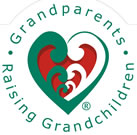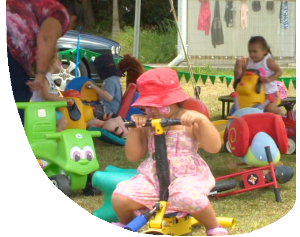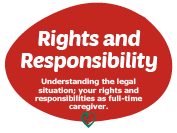
Call us toll free on 0800 472637
|
First Response
 When you first get that call to take on the care of your grandchildren or you realise that is what you must do to ensure their safety and well being, you are likely to be swamped by a thousand questions and a sudden realisation of the enormity of the journey ahead of you. And these are just the thoughts and questions in your own head, let alone the questions that will come later from the children and others around you.
When you first get that call to take on the care of your grandchildren or you realise that is what you must do to ensure their safety and well being, you are likely to be swamped by a thousand questions and a sudden realisation of the enormity of the journey ahead of you. And these are just the thoughts and questions in your own head, let alone the questions that will come later from the children and others around you.
STOP! Take a deep breath. Sit down and have a cup of tea.
Now read on...
There are some things that it is important to get right and get sorted from the beginning.
Children thrive best when they are loved, nurtured, feel safe and all their basics like food, shelter and clothing are taken care of. If you have that sorted then you are well on the way.
Here are some tips for making the days, weeks and months ahead manageable as you take on this journey with your grandchildren.
 Routine, Routine, Routine!
Routine, Routine, Routine!
One of the most important things you can do for your grandchildren and whanau in the early days is to establish a routine.
Make sure breakfast is at the same time each morning. Get them up and eating breakfast at 7am with a nourishing breakfast. Some children also respond well with a warm chocolate milk like Milo or Bournvita that has added vitamins. Find out what works for them and what makes them feel loved and reassured each day before they head out into the world.
For little ones at home each day or for the older ones on the weekends too, make part of your routine morning tea, lunch, afternoon tea and dinner time at around the same times each day.
Children need routines. For children who have been in an abusive situation before coming into your care they may have experienced no routine whatsoever which has simply added to their overall heightened state of anxiety and uncertainty about the world they are living in.
 Reassurance, Reassurance, Reassurance!
Reassurance, Reassurance, Reassurance!
It is so important to reassure your grandchildren that you love them. It is also important to reassure them that Mum and Dad still love them too – even if it means you feel like you are saying it through gritted teeth. Say it! It is important.
They also need to know and be reassured that they are not the problem and the reason why they are not living with their parents, because in nearly all cases they can’t help but think they are responsible and they blame themselves. This is turn erodes their self-esteem and confidence and creates anxiety which overwhelms their ability to adjust and adapt to their new lives; to grow, develop and to realise their full potential.
Keep things calm around the children. Never discuss adult issues in front of them and never criticise their parents in front of them or within earshot of them. They are inextricably linked to their parents as you are to your own children and we all derive a sense of identity and self-esteem that is in some way linked to our view of our parents.
 Birth Certificates
Birth Certificates
If you haven’t already got them – you will need to have a certified copy of the children’s birth certificates before you can enrol them in any pre-school or school. To apply for a New Zealand birth certificate there are a number of options available through the Department of Internal Affairs website or you can go to the Births Deaths and Marriages counter at your nearest District Court Registry Office and complete a form there.
 Register the children with a GP
Register the children with a GP
If the children don’t already have a regular doctor they go to who is known to you, it is a good idea to get them registered with a GP to ensure their ongoing health needs are taken care of and especially to check whether they have been immunised or not. You will need to provide an Immunisation Certificate when enrolling the children in school or preschool or at the very least be able to advise them of their immunisation status.
Every child has a unique National Health Index Number assigned to them at birth and there is a National Immunisation Register that the doctor can refer to in order to advise you whether the child or children have received their immunisations or not or what have been missed. You can then make the necessary decisions about vaccination from there.
For more information on immunisations please see the Immunisation Advisory Centre website that has loads of helpful information.
For more information on the free health services available to children please see the Ministry of Health website on the Well Child/Tamariki Ora services for children.
 Safety
Safety
- There are many aspects to safety to think about when your grandchildren come into your care.At each age and stage of their development you need to think about your physical environment. Are there items down low that a baby or toddler could accidentally swallow or hurt themselves with? Are their cords from curtains or blinds that could be dangerous? Do you need safety gates? The list of potential risks can seem endless when caring for little ones especially and it is likely you've had to think about these things many years before as a parent. To refresh your memory Plunket NZ have plenty of tips and advice on their website as do Safekids.
- You also need to think about the children’s safety and your own in situations where there is conflict between you and the parents or other members of the family/whanau as a result of the family breakdown that lead to the children being in your care.
- From the experiences of some of our members over the years - you may need to consider driving with doors locked, or keeping you home doors locked if you are alone with the children.
- If the parents are allowed to visit the children at specified times only, please make sure that you notify the pre-school or school as to the care and contact arrangements. You may need to take along a copy of contact (access) orders to the school or preschool. A photo of the parent/s to give to them is also helpful for them to have ahead of time in case they turn up unexpectedly. This is particularly helpful in a school situation where there are so many parents coming and going. If you have day to day parenting orders a photocopy of these will also have to be supplied to the pre-school or school. For more information on your legal rights please read more here >>
- If you notice any marks or unusual bruising on a child after a visit with a parent, immediately take photos and get the child to a doctor or hospital and ask the doctor to note this carefully in their notes. They may wish to take photos themselves. If there is an Oranga Tamariki social worker involved with the child you must notify them immediately also on the 0508 FAMILY or 0508 326 459 and ask the call centre to record your message if it is phoned in after hours. Then place a call to social worker on the next business day to notify them of your concerns. See here for more information if you are worried about a child.
- Until things are settled down it is advisable to drop children at school and be there waiting for them after school as this will settle a child and reassure them that they are safe.
- The privacy of children in situations such as toileting, showering and changing clothes should also be respected.and it is advisable that grandparent or whānau caregivers avoid situations that could be construed as inappropriate. When it is necessary to supervise children in these situations two adults ideally should be present and you should only intrude to the extent necessary for the health and safety of the children. Remember children who have been sexually abused in the past are particularly vulnerable and even in your care you must be sensitive to their situation. For more helpful information on these issues please read chapter 2 of our GRG Handbook here. If you are concerned about the behaviour of any child or adolescent in your care or the behaviour of adults around them SAFE Network Inc NZ may be able to help. SAFE operates the largest community-based specialist clinical assessment and treatment service in New Zealand for those with concerning and harmful sexual behaviour towards children. They specialise in working with adults and adolescents to address their harmful sexual behaviour and they have specialist clinicians who also work with children who have problematic or concerning sexual behaviours, assisting them to learn to express themselves in healthier ways.
Keep all your legal documents in a safe place and have plenty of photocopies. If you know where everything is that you need for all the professionals and agencies you will be in contact with, it will reduce your stress. As they say - don't sweat the small stuff!
 Join GRG
Join GRG
Contact GRG and become a member – click here to join now.
Every new member of GRG receives a Resource Pack containing:
| Our GRG Handbook – which contains a vast amount of information and advice for carers on the issues grandparent and whanau caregivers have to deal with from self-care to the legal and financial issues. | |
| Help when You’re Caring for Someone Else’s Child – a handbook published by Work and Income with input from GRG covering the financial support entitlements available to grandparent and whanau caregivers. | |
| The Grandparents Raising Grandchildren Parenting Toolbox - a set of 9 DVDs produced by the Parenting Place in conjunction with GRG which duplicates their parenting course. This is an invaluable tool with entertaining and practical tips and strategies from grandparents raising grandchildren and some of New Zealand's best loved personalities including Dame Alison Holst, Bob Kerridge (grandparents themselves) Pio Terei and of course our very own founder Diane Vivian. | |
|
Helpful booklets for caregivers of babies, under-fives and teenagers (which includes a booklet on sexual health).
|
 Food, Clothing and Necessities
Food, Clothing and Necessities
If you are in urgent need of assistance for items like clothing, bedding and food there are many agencies set up to help you in the community such as your local churches and Op shops. The following organisations can also help and in some cases your local GRG Support Coordinator can help you with emergency clothing and necessities. They have been there before and know exactly what you are going through so please get in touch with them.
If you need help or a referral to one of our advocates please contact us on our 0800 GRANDS helpline or 09 4806530
 Financial Support for Caregivers
Financial Support for Caregivers
You may also be eligible for the Unsupported Child or Orphan's Benefit.
Learn more about your RIGHTS AND RESPONSIBILITIES here with more information on the legal and financial issues you need to know on your caregiver journey.





